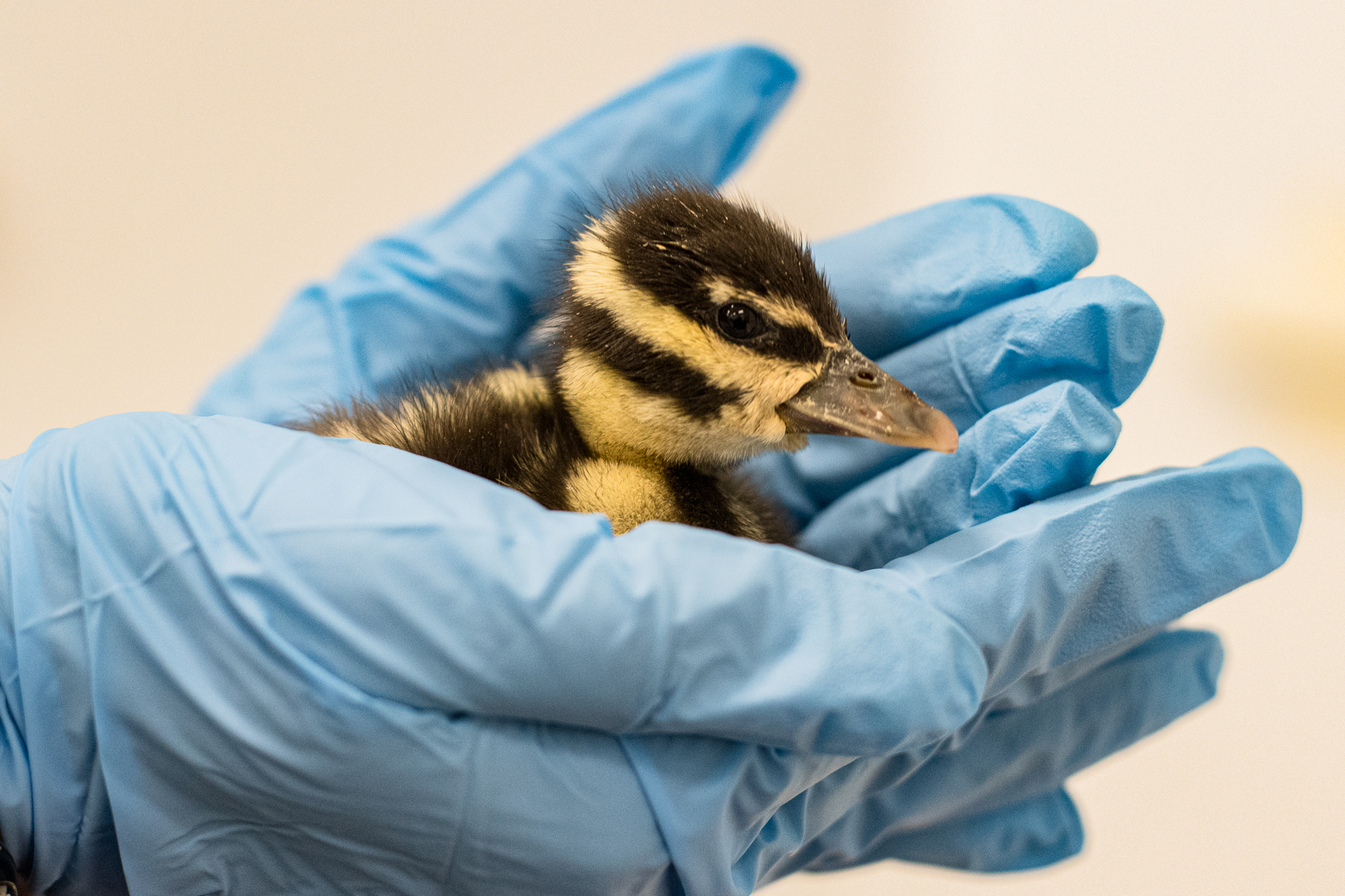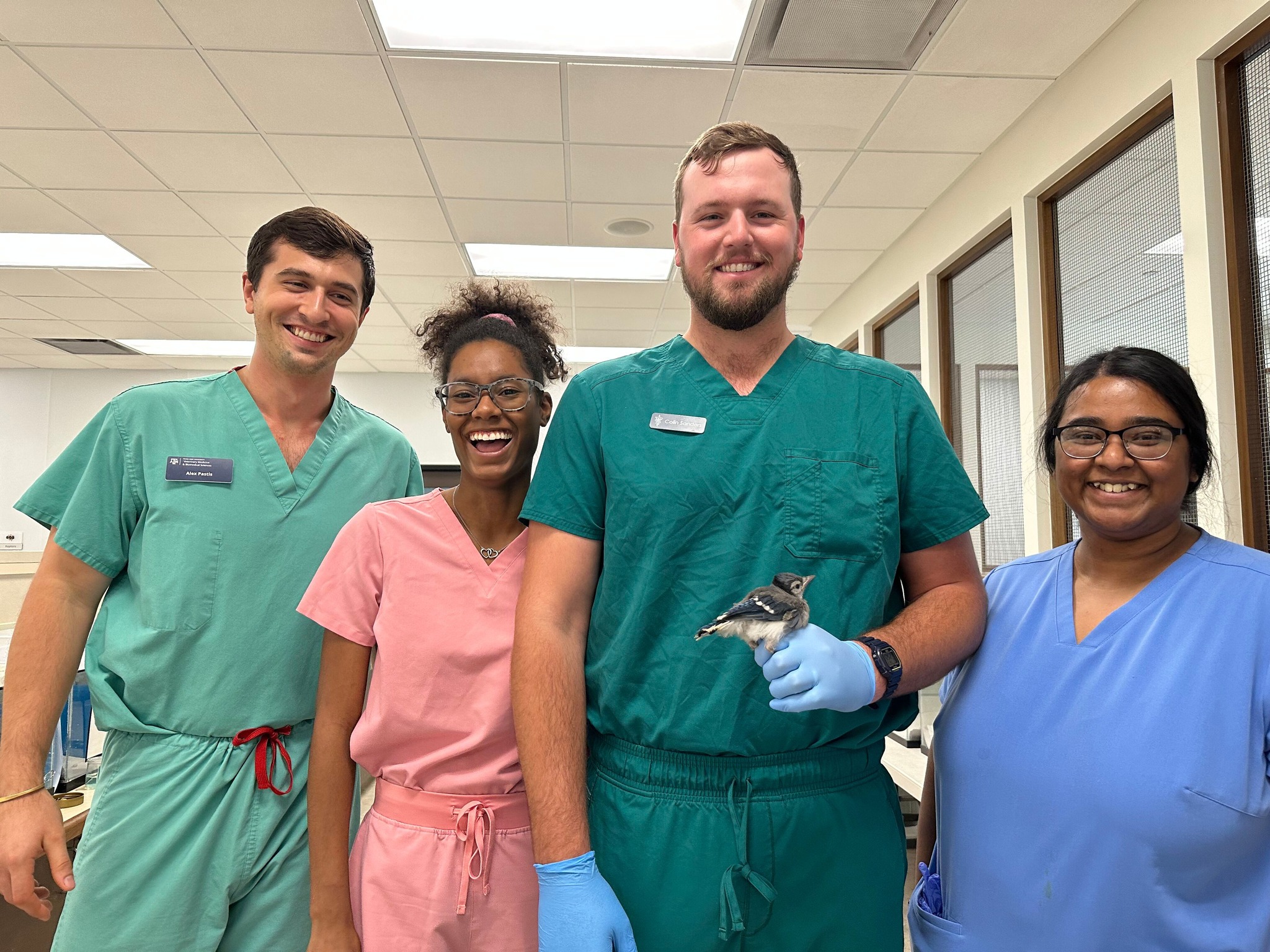
What to Do if You Find Injured Wildlife
So you found an inquired squirrel in your yard, or perhaps a sickly owl on the ground? Where can you take the animal to get help? There are several resources around the Greater Houston Area that can help, including the Wildlife Center of Texas.
-
Observe – Look for injuries, parents, and siblings.
- Replace – If the baby is not injured and the parents are still around, just re-nest it.
- Collect – Place it in a box with soft rags and keep it warm until you can get to the center. DO NOT give the baby any food or liquids!
- Contact – Reach out to the Wildlife Center of Texas right away at 713-861-WILD (9453).
Injured Animals
Injured wildlife should be brought to The Wildlife Center of Texas as soon as possible (see paragraph BELOW if the animal is a raccoon, skunk, bat, fox, or coyote). Injuries are often treatable, but the longer an animal has to wait before receiving care, the more difficult it is to successfully treat them. The Wildlife Center of Texas is OPEN 7 DAYS A WEEK and works closely with veterinary staff at the Houston SPCA and students at Texas A&M’s College of Veterinary Medicine to give injured wildlife all the help they need. The Wildlife Center of Texas website is full of inspiring stories of badly injured animals that were brought to The Wildlife Center of Texas by a rescuer and made a full recovery. Please bring injured wildlife to the Wildlife Center of Texas as quickly as possible to give them the best chance of survival.

After Hours Care
In the event that an injured animal is found after hours, the best treatment a rescuer can give the animal is warmth. Warm temperatures help keep an animal calm, avoid shock, and promote healing. Injured animals should NOT be given food or liquids, as these may actually do more harm than good. Keep the animal in a dark, quiet place, such as contained in a box or kennel, and put them in a warm place until they can be brought to The Wildlife Center of Texas the next morning.
Rabies Vector Species
The Harris County Health Department classifies Raccoons, Skunks, Bats, Foxes, and Coyotes as high-risk rabies vector species, and special care must be taken to ensure that no saliva exposure occurs. Due to an advisory from the regulatory authorities at the Harris County Health Department, we may notaccept skunks, bats, foxes, or coyotes. We are able to accept raccoons from certain counties in the greater Houston area, but not all. Please call The Wildlife Center of Texas at 713-861-9453 to speak with staff in order to determine whether we are permitted to take raccoons from your county.
The Wildlife Center of Texas is located at 7007 Old Katy Rd, Houston, TX 77024. They are open 7 days a week from 9:00 AM to 6:00 PM daily. The Center is closed Thanksgiving Day, Christmas Day, and New Year’s Day.
For questions and more information, call 713-861-9453. Note that you do NOT have to call or make an appointment before bringing an injured, ill, or orphaned animal to the center unless it is a rabies vector species. For more information about what to do if you find injured wildlife, please visit wildlifecenteroftexas.org/need-help/found-injured-or-orphaned-wildlife.
To view a list of wildlife rehabilitators in Harris County, check out this listing provided by Texas Parks & Wildlife.
Source: WCT

